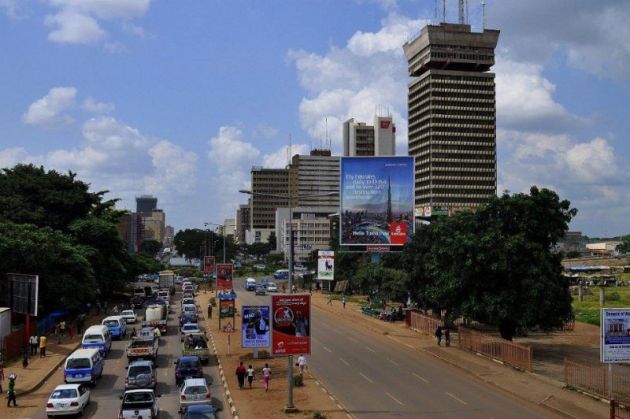Church services, schools halted in Zambian capital after cholera outbreak

Zambia has banned church services and shut down schools in the high-density residential areas of the capital Lusaka due to a cholera epidemic that is threatening the nation of more than 15 million people.
The World Health Organization said on Jan. 12 it estimated that around 440 000 people living in hotspots in five sub-districts of Lusaka had received their first dose of an anti-cholera oral vaccine. In two weeks they will receive a second dose.
"Zambia is experiencing one of the worst outbreaks of cholera in years," said Dr. Nathan Bakyaita, WHO Representative to Zambia.
Police in Zambia arrested 55 people in Lusaka after residents rioted over a curfew and ban on street vending imposed to control a cholera outbreak, the government had said on Jan. 12, Reuters news agency reported.
The riots were in the densely populated Kanyama township and sparked after police sealed off a market where trading had been banned day before, when the curfew was declared.
Zambia's Home Affairs Minister Stephen Kampyongo said at a media briefing that the residents smashed window panes at a local police station and set ablaze one motor vehicle.
NEARLY 3,000 CHOLERA CASES
As of Jan. 10, the Ministry of Health has reported 2,905 suspected cases of cholera, with 67 cumulative deaths in Zambia, said WHO.
Lusaka alone registered 2,755 suspected cases, with 62 deaths. As of Jan 8, the case fatality rate was 2.27 percent.
The Zambian bishops' conference has implemented measures, such as eliminating the handshake of peace in areas where masses are still allowed, Catholic News Service reported.
Zambian government ministers said Jan. 7 that all gatherings of every nature, including church services, were banned in areas most affected by the epidemic.
The ministers said the ban was aimed at curbing the spread of the disease and making current treatment measures more effective.
Cholera is caused by bacterial infection. Within a few hours of infection, the disease causes vomiting and diarrhea, leading to severe dehydration that can be deadly without rapid intervention.
Access to clean water and sanitation is critical to control the spread of cholera, and those with mild symptoms can usually be treated with hydration and antibiotics, although some cases require intravenous fluids.
CHRISTIAN COMMUNITY REPRESENTATIVES
Representatives of three Christian communities in Zambia – the Catholic Church, the Council of Churches in Zambia, and the Evangelical Fellowship of Zambia – issued a Jan. 8 statement on national dialogue in which they expressed sadness at the loss of lives due to the cholera crisis.
In a "Statement of National Dialogue" On Ian. 8, the Council of Churches in Zambia, Evangelical Fellowship of Zambia, and Zambia Conference of Catholic Bishops stated there can be no peace without justice in Zambia, the World Council of Churches reported.
"True dialogue means a change of heart, attitude and behavior," the statement reads. "It is a project, an ongoing process and effort."
Lack of peace hurts everyone, especially the weak, elderly, the poor, women and children, the statement continues.
"It hurts us Christians because we are essentially brothers and sisters of Jesus Christ who identifies himself with the same poor and the suffering," the text reads.
"Despite the public pronouncements that Zambia is a peaceful country, the reality on the ground is different due to many acts of injustice, a growing culture of corruption, incidences of violence and utterances out of deep-seated hatred."
The religious leaders urged political leaders to stop insulting each other or anyone who does not agree with their political opinion.
"These leaders of political parties must restrain themselves and their members from making inflammatory or irresponsible statements."